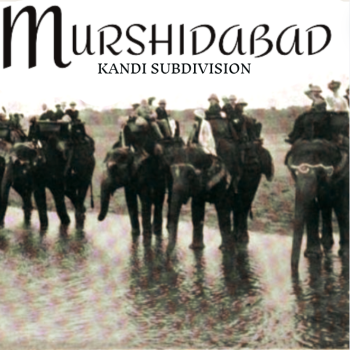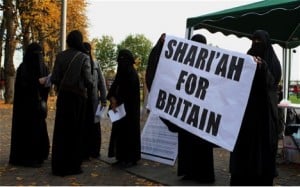Recently, the South African Justice Ministry opened the latest draft of the Muslim Marriages Bill (MMB) up for public comment and called for submissions on the bill’s contents.
Along with this came the media furor over the Muslim community’s reaction to the idea of the government recognizing Muslim marriages as Muslim marriages and providing legislation for Muslims according to both constitutional gender equality and the dynamism of fiqh. The point of this post is not to assess the Shar’iah compliance of the bill, but to highlight the voices in the media that have spoken out against blatant dismissal of the bill and called for critical engagement, especially since most of the issues deal with gender equality and women’s rights within marriages.
Why, you may be wondering, would some Muslims be averse to a bill which would, if passed, help against the abuse and violation of women’s rights in marriages, with measures such the setting of a minimum marriage age to the requirement of the court’s permission to enter into a polygamous union?
The answer is that some Muslim organizations have been using emotional incitement tactics to stir up the ignorant amongst the Muslim community with campaigns such as “MMB is anti-Shariah” or “Don’t support the Kufr MMB.”
Headlines such as “While women’s-empowerment groups welcome fact that bill will give women access to courts, religious bodies say it will contravene Shar’iah law” loomed large, setting the ideas of women’s empowerment and religion at odds against each other. Other outspoken supporters of the bill, such as Lawyer Waheeda Ameen, Professor Abdul Kader Tayob, and Munira Osman-Hyder, executive member of the Association of Muslim Accountants & Lawyers and secretary of the Coalition of Muslim Women, were prominent in raising the issue of the bill as a tool for gender justice.
Osman-Hyder, in an opinion article, writes
The MMB sets out a legislative framework for the recognition and regulation of Muslim marriages. The said legislation is not intended to be forced upon the community as it gives parties the option to choose to be governed by such a marital regime. Further, it regulates polygyny and the registration of a talaq, all with the purpose of establishing equity between the spouses and to bring relief to the hardships faced.
Amien, one of the key proponents of the Bill, herself a Lawyer and University professor was interviewed in several print, television and radio agencies. Her stance was clear:
Since Muslim marriages do not have legal recognition, aggrieved parties such as vulnerable women cannot seek redress in the secular courts. Enactment of the bill is, therefore, essential to provide much needed protection for women. Although the bill does not afford absolute gender equality between women and men, it will allow women to access rights they have previously been denied. If the bill is not enacted, current injustices against women will continue to be perpetrated.
She argued that opponents of the bill feared the erosion of patriarchal power.
The main reason that this Bill is being proposed is that many men do not honour their obligations under Sharia law…They fail to maintain their wives and children, they abuse their wives, they talaq (divorce) their wives arbitrarily and without notice and they enter into polygamous marriages without being able to treat their wives equally. [sic]
Abdulkader Tayob, a professor at the University of Cape Town, points out that the religious rhetoric used to oppose the bill, voiced mainly by men, has obscured the main problem of non-recognition and the victims of this non-recognition–Muslim women:
In post apartheid South Africa, Muslim men in conflict with their spouses want to naturally maintain this status quo. They do not want their wives to seek redress in court, nor in any progressive interpretation of Islamic law. The religious language of a Kufr MMB provides a perfect cover for this status quo.
All the substantive objections to the Bill reveal this male privilege. We are told in no uncertain terms that the rights of men are given by God and the Prophet Muhammad, and may not be tampered with. In some of the objections, women are regarded as emotional, deficient in intellect and wayward. Their demand for rights are framed as feminine weakness or religious infidelity.
Indeed and not surprisingly, commentators against the bill in the media were only men, such as Yousha Tayob, spokesperson for the Muslim Lawyers Association, who vociferously stated that
We don’t want Muslim marriages regulated and determined by non-Muslim people. [They] can never have an understanding of Sharia law. It’s not that we don’t recognise that there are problems, but this Bill will not cure them. [sic]
One of the most nuanced articles which came out of this frenzy was by up-and-coming journalist Khadija Patel, entitled, “Muslim Marriage Bill comes to SA, not a moment too soon,” where she deals with the issue of Muslim identity and integration in South Africa. She notes that
The bill has become yet another trope upon which religious leaders contest power. Women’s rights are a mere circumstance as South Africa’s divisive Muslim theologians fight a tug-of-war over the hearts and minds of the country’s Muslim population.
The current draft bill is open for comment until the end of May. Whichever side of the fence people are standing on, there is still a long road ahead. It remains to be seen if Muslims who oppose anything related to gender equality or Muslims who participate and engage in this exercise of democracy will dominate the media discourse surrounding the MMB. At the core however, are the many Muslim women whose rights are violated within marriages, with no recourse to justice. Whether legislation is passed or not, this problem is one that needs serious redress.















